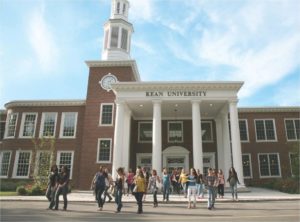President Will Swaim of the California Policy Center wrote a new year’s letter to CPC subscribers decrying the “legal corruption” by California’s public-sector unions. The letter’s language would perfectly describe New Jersey if you simply swapped “New Jersey” for “California” and changed some of the numbers. In fact, Sunlight’s website contains a research project (for the American Enterprise Institute) on the most powerful New Jersey public-sector union, the NJEA, that was entitled “The Legal Corruption Series.”
Here is Sunlight-altered New Jersey version of Swaim’s letter:
“Collectively, New Jersey’s government unions collect hundreds of millions in member dues every election cycle. That’s hundreds of thousands of dollars every day, 365 days every year – and that’s money union leaders use to keep their preferred politicians in office.
These government unions are by far the most powerful and lavishly overfunded political actors in New Jersey – and among the most powerful in the United States.
But what can you and I do about it?
The most powerful thing we can do to end this legalized corruption is to reduce the money that flows to unions in the form of member dues.
Today, hundreds of thousands of public employees in New Jersey are trapped in a system that sucks dues payments out of the paychecks of virtually every government worker in the state. To escape that system, you have to know about it – and New Jersey lawmakers financed by the unions have made that nearly impossible.”
Sunlight would add to Swaim’s language that in New Jersey, lawmakers made it impossible by passing the Workplace Democracy Enhancement Act. This Orwellian-titled act replaced agency fees as the means by which government unions coerce members to join and have their dues withheld from their paychecks.
This is the “legal corruption” that both Swaim and Sunlight refer to: using the NJEA as an example, taxpayer dollars go directly into the NJEA’s coffers, with school districts and teachers acting as mere pass-throughs. The districts and teachers never see the money. The NJEA then uses those taxpayer dollars to influence politicians to serve their own interests.
A rigged system in which the special interests win and New Jersey citizens lose.




